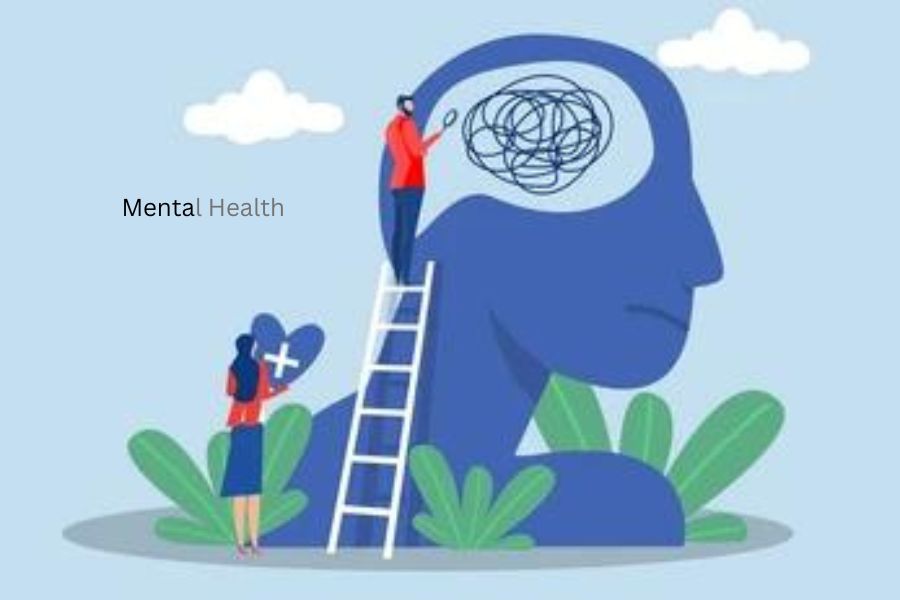Mental health Matters is a topic that resonates with everyone, yet it often feels shrouded in stigma and misunderstanding. With the rising pressures of modern life, from work stress to social media overload, taking care of our emotional well-being has never been more crucial. At the heart of this journey lies an essential practice: self-care.
Imagine navigating life’s challenges with resilience and grace. Picture yourself equipped with the tools to handle stress while maintaining balance and joy. This isn’t just wishful thinking; it’s attainable through understanding mental health and embracing self-care as a vital part of your routine.
Join us as we explore how prioritizing self-care can significantly impact your mental health. Let’s dive into practical strategies that empower you to cultivate emotional resilience and enhance overall well-being. Your mental wellness matters, so let’s embark on this transformative journey together!
Understanding Mental Health Matters and Emotional Resilience
Mental Health Matters encompasses our emotional, psychological, and social well-being. It influences how we think, feel, and act in daily life. Understanding this complexity is the first step toward nurturing a healthier mind.
Emotional resilience refers to our ability to adapt to stress and bounce back from setbacks. It’s not about avoiding difficulties but facing them with strength and perseverance. Resilient individuals can navigate life’s ups and downs while maintaining a sense of purpose.
Key components of mental Health Matters include self-awareness, emotional regulation, and coping strategies. These elements help us manage anxiety or depression effectively.
Recognizing the interplay between mental health and resilience allows us to take proactive steps for improvement. By prioritizing both aspects, we lay the groundwork for a more fulfilling life filled with hope and possibility.
The Importance of Self-Care in Maintaining Mental Health Matters
Self-care plays a vital role in mental health. It’s not just about indulgence; it’s essential for emotional balance. When we prioritize self-care, we create space to recharge and reflect.
Engaging in regular self-care helps reduce stress levels. This, in turn, boosts our resilience against life’s challenges. Simple activities like reading a book or taking a walk can shift your mindset significantly.
Moreover, taking time for yourself nurtures self-awareness. You become more attuned to your feelings and needs when you embrace this practice regularly.
It also sets an example for those around you. By prioritizing self-care, you encourage friends and family to do the same, fostering healthier relationships throughout your community.
Remember that self-care isn’t selfish; it’s necessary for maintaining emotional well-being and navigating life with grace.
Types of Self-Care: Physical, Emotional, and Psychological
Self-care encompasses various dimensions, each vital for maintaining overall mental health. Physical self-care focuses on nurturing the body. Regular exercise, a balanced diet, and adequate sleep are foundational practices that boost energy levels and enhance mood.
Emotional self-care involves recognizing and processing feelings. Activities like journaling or engaging in creative outlets can help individuals express their emotions constructively. Acknowledging what you feel is crucial to resilience.
Psychological self-care targets your mind’s well-being. This might include mindfulness practices such as meditation or deep-breathing exercises that cultivate awareness and reduce anxiety. Setting boundaries against stressors also falls under this category.
Each type of self-care interconnects, creating a holistic approach to mental wellness. Emphasizing one area often enhances others, contributing to greater emotional resilience over time.
Practical Self-Care Strategies for Daily Life
Self-care doesn’t have to be complicated. Simple changes in your daily routine can make a big difference.
Start each day with mindful moments. A few minutes of meditation or deep breathing can set a positive tone for the hours ahead.
Incorporate movement into your day, whether it’s stretching, walking, or dancing around your living room. Physical activity is vital for both body and mind.
Nourishing meals matter too. Opt for wholesome foods that fuel you rather than deplete energy levels. Remember to stay hydrated; water is essential for mental clarity and mood stability.
Take breaks throughout the day to recharge. Even five minutes away from screens can help refresh your focus and boost creativity.
Prioritize sleep by maintaining a consistent schedule. Quality rest enhances emotional resilience and overall well-being, making it easier to face challenges head-on.
Overcoming Barriers to Self-Care and Seeking Professional Help
Many people struggle with self-care due to barriers like time constraints and societal expectations. It’s easy to feel guilty about taking time for oneself, especially in a fast-paced world that glorifies busyness.
Recognizing these feelings is the first step toward change.Mental Health Matters Prioritizing your well-being doesn’t mean you’re neglecting responsibilities. Instead, it enhances your ability to cope with stress and challenges.
Seeking professional help can be daunting but incredibly beneficial. A therapist or counselor can provide valuable insights tailored to your needs. They create a safe space where you can explore emotions without judgment.
Remember, asking for support is not a sign of weakness; it’s an act of courage. Surround yourself with understanding friends or family who encourage healthy habits and remind you that caring for yourself is essential for mental health.
Cultivating a Supportive Community for Mental Health Matters Well-Being
A supportive community is vital for nurturing mental well-being. Surrounding yourself with understanding individuals creates a safe space to share thoughts and feelings.
Engaging in group activities can foster connections. Whether it’s joining local clubs, attending workshops, or participating in online forums, these interactions promote empathy and shared experiences.
Listening actively is equally important. When friends or family express their struggles, being fully present can make a world of difference. Sometimes, just knowing someone cares alleviates heavy burdens.
Volunteering also strengthens bonds within communities. Helping others not only uplifts those around you but can enhance your own mental health too.
Remember that it’s okay to seek help when needed. Building relationships with mental health professionals adds another layer of support that enriches your network and enhances resilience during tough times.
Conclusion:
Mental health is a vital component of our overall well-being. Understanding its significance allows us to prioritize self-care as an essential practice in maintaining emotional resilience. The importance of self-care to mental health cannot be understated; it helps replenish our energy, fosters positive emotions, and equips us to handle life’s challenges.
By recognizing the different types of self-care—physical, emotional, and psychological—we can tailor our practices to better suit our needs. Engaging in practical strategies daily empowers us with tools that enhance our mental state. From regular physical activity to mindfulness exercises, small changes can lead to significant improvements in how we feel.
While barriers may arise that impede self-care efforts, acknowledging them is the first step toward overcoming these obstacles. Seeking professional help when needed further ensures we have the support required for optimal mental wellness.
Cultivating a supportive community around us creates a network of understanding and encouragement. Building connections with others who value mental well-being strengthens not only individual resilience but also collective strength.
Embracing the importance of self-care is key to navigating life’s ups and downs effectively. Prioritizing your own needs contributes not just to your personal journey but inspires those around you too.











